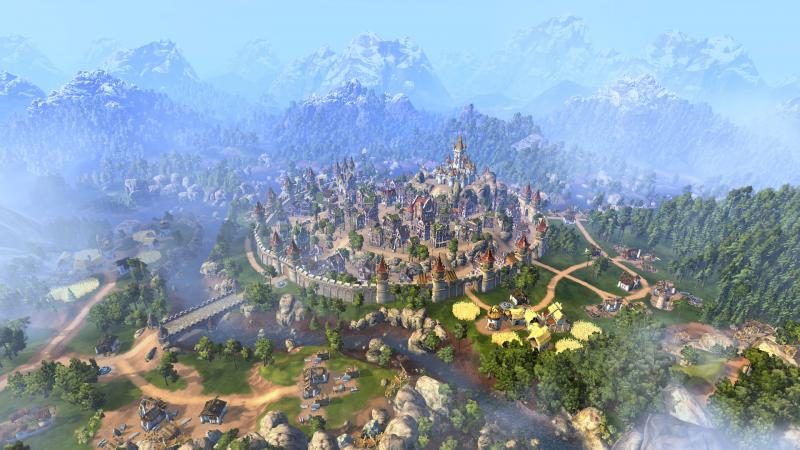
This series originally ran in PC Gamer UK magazine as a column called They're Back, in which Jon Blythe took a sideways look at ageing games and re-releases before meting out judgement.
This week's edition was first published in September 2011, which is why it talks a lot about physical re-releases and bundles and other things that don't exist any more.
The Settlers 7: Paths to a Kingdom teaches us that 74% efficiency is not enough.
Ubisoft’s stifling DRM is a gift, at times. It means I can ignore the baroque, resource-mental micromanagement of this town-building strategy game, and simply bark on about how you have to be constantly online to play even the singleplayer campaign. And the best thing about this tactic is that I’ll be treated like a hero of consumer rights, and not a man who’s spent hours out of his depth, unable to remember which storehouse he left his fish in.
That’s the most notably Teutonic thing about The Settlers, and Paths to a Kingdom: it’s not just about turning trees into wood, or gold, coal and food into coins. It’s about raw percentages of efficiency. It’s about not being able to assume that things will tick over, because five minutes later your butchers could be miffed off and bone idle, because one of the network of interconnected resources they require either doesn’t exist or is on the other side of the map.
Hang on, you can’t trick me into talking about the game. We’ve got DRM to slag off. While Ubisoft have quietly rolled back the always-on requirement in some of their games, nobody’s passed that on to The Settlers 7.
Hang on, you can’t trick me into talking about the game. We’ve got DRM to slag off.
People on patchy connections: this game will pause if your ISP has a little relax. People who don’t trust their possessions to the continuing existence of an authentication server, avoid this. And people who personify and love corporations to the point where they can actually feel betrayed by them—well, roll over and take it. You’re in for a lifetime of abusive imaginary relationships.
Is there anyone left? Well then, I don’t have to worry about Settlers’ beguiling network of co-dependent buildings, the individually simple rules that combine into a engrossing rulebook, the slow process of knitting the raw, finite resources of the land into posh sausages that can be used to buy musketeers, and raising the prestige of your town to access new buildings and professions.
Keep up to date with the most important stories and the best deals, as picked by the PC Gamer team.
I can cheerfully neglect my duties, and say nothing whatsoever about the Victory Points system, which brings a varied set of win conditions to The Settlers, and has a dual effect: forcing you into creating a well- rounded settlement, and opening up some rude opportunities for coming back from the brink.
But I’d be stretching this weak ongoing attempt at a joke to beyond breaking point if I pretended not to be telling you about the slowness of the game, and how you’ll find yourself zooming in and out on people doing their jobs, and ferrying objects around, because there are times there’s nothing else to do. And I’d be insulting your intelligence if I thought I could get away with one final reiteration of that long-broken joke simply by breaking the fourth wall and going all meta. So I won’t. Here, have a score. Subtract DRM penalties as you see fit—I haven’t.
Verdict: Draconian wrapping aside, it’s fussy, ornate and engrossing. You decide whether these ambivalent words are good things.
Jon's score: 75
Bullfrog’s Dungeon Keeper gets a good GOGing over
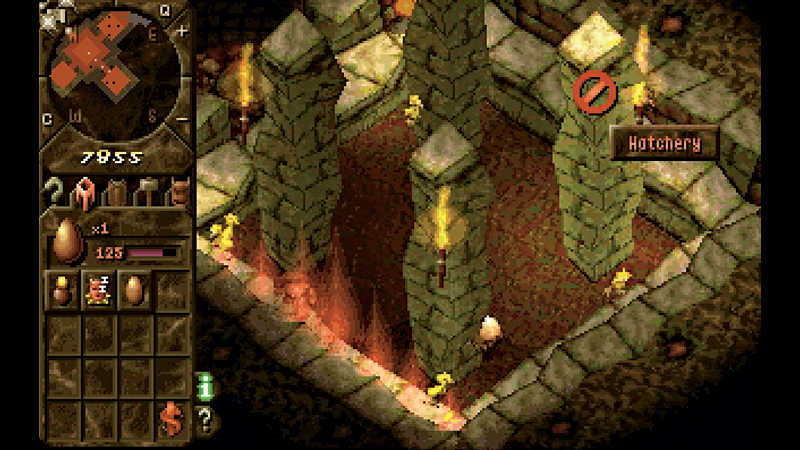
Before Peter Molyneux inhaled a fluffy cloud and became lost forever to a dream-like state of optimism, there was Bullfrog. A factory of bona fide classics that still have the rare ability to make the past feel somehow worthwhile. In stark contrast to games like Privateer (below), you can play them and feel like you’re playing a modern game, just with inflamed pixels.
You run a dungeon for profit. It’s that simple. Unlike The Settlers, which unloads barrel after barrel of fuss into your lap, Dungeon Keeper is a cunning fuss-ratchet. Even the early levels, where you’re building no more than a treasure room, lair and hatchery, have a good sense of tutorial progress about them.
Each mission brings something new, in terms of goals, exploration and abilities, and by the time you’re summoning Horned Reapers with temple sacrifices, it’s relentlessly intense. It unfolds with all the deft, compelling skill of a PopCap game, but never feels anywhere near as psychologically cynical.
A lot of the intensity is because of the bloody narrator. Imagine driving a car with a passenger who shouts your speed, bearing and whether anyone’s in the back seat every four seconds. That’s this asshole, and there’s no way to turn him off. The tenth time you get told your creatures are attacking each other, is the time you slap all your flies to death yourself, just to finish the job.
Multiplayer isn’t the easiest to set up, but the campaign itself is easily worth $6, if only to be reminded that the ’90s wasn’t all Princess Diana and Suede.
Jon's score: 90
Wing Commander: Privateer
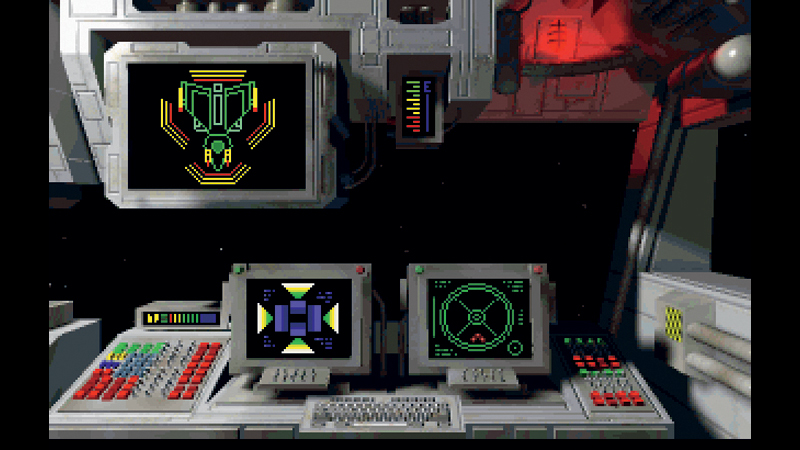
This was a space-trading game that came out six months after the Pentium chip, when an intimate knowledge of your IRQ channels was a pre-requisite for gaming, and if it wasn’t Soundblaster-compatible, it wasn’t going to be playing your MIDI files. Of course, it shows: while this was a classic of its day, you’ll need to recalibrate how you expect a game to respond to mouse and keyboard, and if Dungeon Keeper suffers from inflamed pixels, this feels like you’re being pelted with centimetre cubes. Good Old Games have the manual to hand—keep it open in one window while DOSBox runs the game, and you can plod academically through it. Or just play one of the fan remakes. Yes, do that instead.
Jon's score: 78
King's Bounty: Platinum Edition
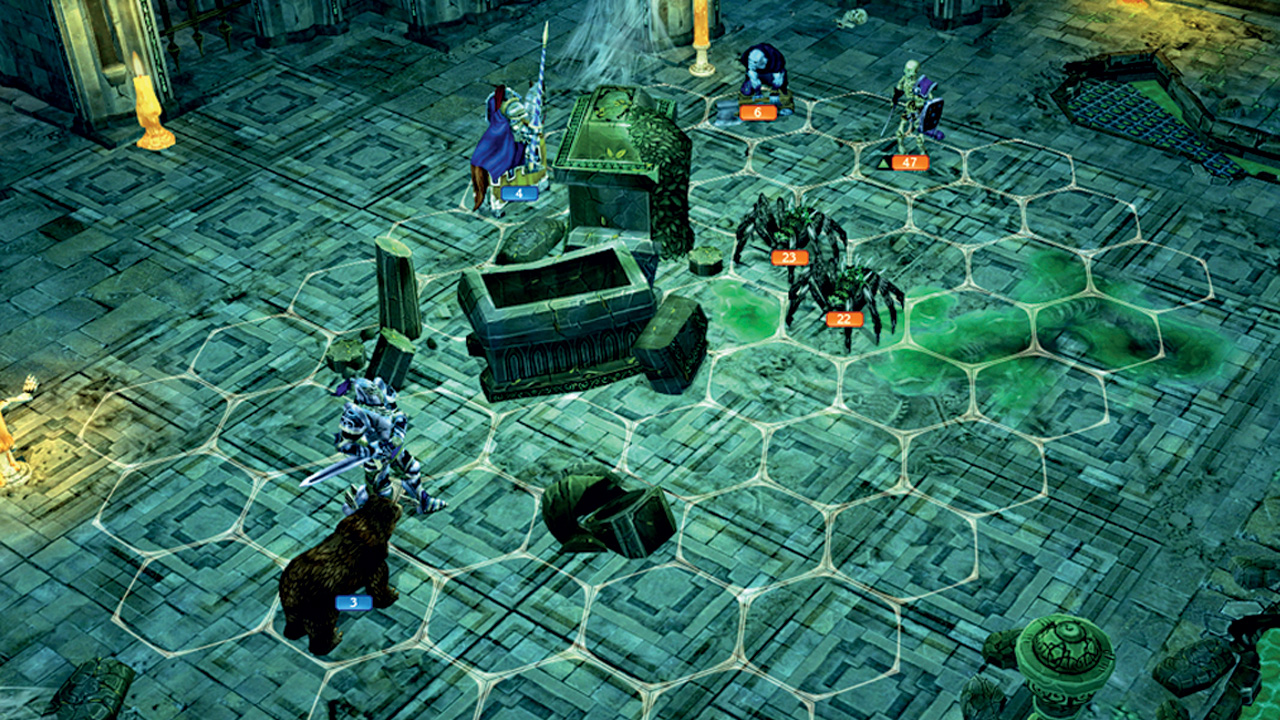
I haven’t got many words here, so it’s probably best to describe the game in terms of others. It’s Heroes of Might and Magic crossed with... well, crossed with Heroes of Might and Magic, really. It’s pretty, slick and deep, and in terms of finicky ornate menus it’s nearly a match for The Settlers.
But there’s also a sense of humour and canny turn of phrase at work: unexpectedly, this is the funniest game on these pages, with nearly every text box having a wry take on itself. It’s an easily-overlooked silver nugget that makes you want to overscore it slightly to make people take notice. So that’s exactly what I’m going to do. Deliberately overscore a game by three percent. If you don’t like it, go use maths.
Jon's score: 85
Faces of War
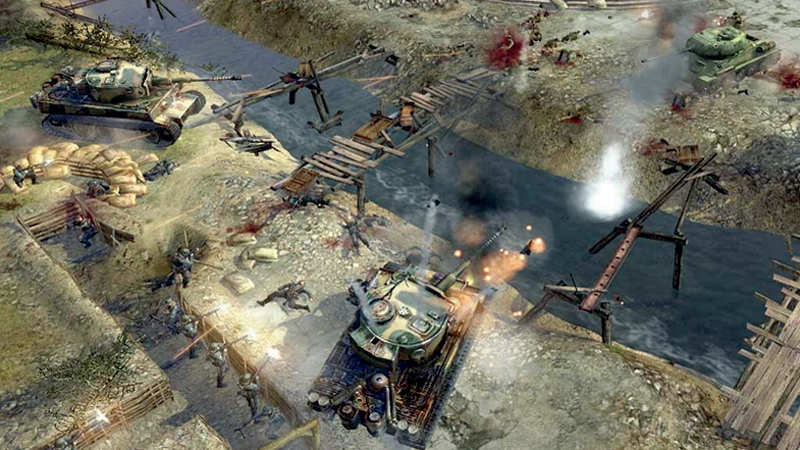
Wait, isn’t there supposed to be one bad game on the page? Something comically rubbish? How am I supposed to throw my weight around like a baffled St Bernard if every game is actually worth playing? I suppose I could go on about WWII being a hackneyed setting, but that’s six times more hackneyed than the setting itself. And besides, Faces of War does feel slightly fresh—even if a lack of polish makes it feel like you’re wrestling the control system as much as a gang of Hitlers. If nothing else, it’s the sequel to the game Company of Heroes sponged its ideas from, so let’s give it an underappreciated round of applause, before deciding we’d rather play Company of Heroes again.
Jon's score: 70

